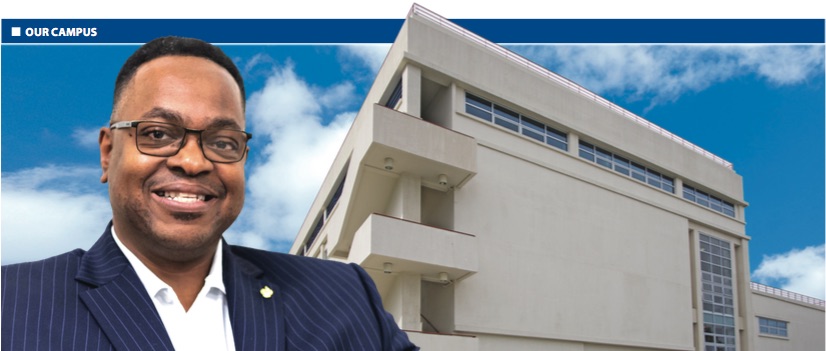
Dr LeRoy Hill, CETL’s new director, has an ambitious plan to energise teaching and learning in higher education
In September 2021, Dr LeRoy Hill was appointed Director of the Centre of Excellence in Teaching and Learning (CETL) at The UWI St Augustine. It is an opportunity for which he is grateful – a chance to give back to The UWI and to the Caribbean.
“I pride myself in indigenous perspectives and approaches, and I think this is an opportunity for me to ensure I give my all,” he says.
Dr LeRoy Hill was raised in Massacre, a village on the eastern coast of Dominica. At age 11, he moved with his family to Anguilla, and finally to East End Sea Feathers, which he calls home. His French first name and English surname, which together can be loosely translated as “the King of the Hill”, belies his unassuming manner. Together with his wife, he has three adult children. The couple met in college and have been married for 26 years.
CETL, previously called the Instructional Development Unit (IDU), is an institution for inspired tertiary-level educators to grow in teaching excellence, and train in curriculum design and learning technologies. Established in 1996, its solely internal services were made available to The UWI lecturers and tutors, and imparts best practices of teaching and learning. Today, Dr LeRoy Hill serves as the Centre’s fourth director and is preceded by Ms Betty Rohlehr, Dr Anna-May Edwards Henry and Dr Margo Burns in the same post.
Although the Centre has run strictly remote events for the last two years, this has not diminished the prestige of CETL’s Certificate in University Teaching and Learning (CUTL) programme, which consists of four courses and is now offered as a fully online programme.
The Centre also has three internal awards that acknowledge and incentivise educator accomplishment: CUTL Awards, the SECL Star Awards, and The UWI/Guardian Group Premium Teaching Awards.
Before Dr Hill’s passion for learning design delivered him to Trinidad and Tobago, he served as the Dean of Studies and then Acting President at the Anguilla Community College in Anguilla. In 2003, he began work on his Master’s in Instructional Design and Technology at Virginia Tech, and on completion of his PhD in Learning Design from the University of Nottingham, Hill relocated to Trinidad to take up the post of Dean of Distance Education at the University of Southern Caribbean (USC).
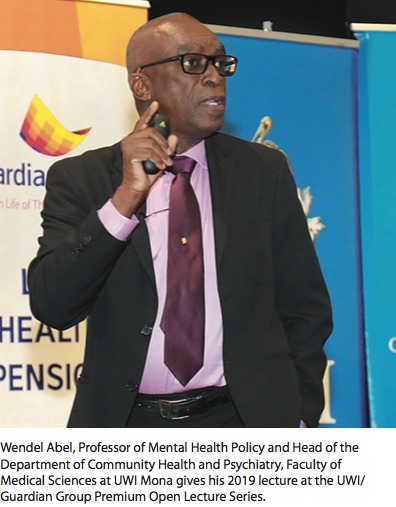
After fulfilling a promise to give back four years at USC, Hill saw a vacancy ad and replied despite having already shipped personal belongings back to Anguilla in anticipation of a return home. “I didn’t see myself as a Dean from an academic standpoint,” he said, so he branched off into online teaching excellence, learning design, and instructional design, where he “gravitated much more to learner-centred approaches”. Hill knew he didn’t want to leave the Caribbean. “I really wanted something that would value the area that I was interested in, which was in learning design, and something that would fit within that. CETL – the work from CETL – fits within that nicely in terms of excellence in teaching and learning.”
That it was Hill’s second choice of career did not dull his fascination with the field of education. Early on, availing himself of Holland’s Self-Directed Search, (a career assessment and exploration tool that matches your aspirations, activities, and talents to the career choices and educational opportunities that fit best) helped inform his decision-making. “I have not regretted it. I never saw myself as an attorney anyway...When I started teaching in 1995, it really solidified it for me.”
He reflected on the gateway moments advancing him through his discipline and found that he was drawn to a technology-enhanced mode. This was heavily influenced by The Children’s Machine: Rethinking School in the Age of the Computer (1994) by Seymour Papert, which treats rethinking education in the information age.
Papert’s scientific work in Mindstorms: Children, Computers, And Powerful Ideas (1980) also greatly influenced Hill’s secondary-level teaching so much so that in 2003, he “experimented in designing a learning management system (LMS), which I eventually called Classnotes.ai, a port of Moodle,” (an open-source LMS). “I installed a port of Moodle for the students, and I was amazed how well it was accepted. And because I love games, I found that was a way to draw persons in. Some students, who were not in my class, would actually come into the system to take part in the games and leave their scores.” This was “quite an interesting revelation” for Hill, because it validated the theory of “distributed cognition” – simply put, “that teaching and learning did not have to be defined within the four walls of the classroom.”
When it comes to students with different learning preferences and challenges, Hill has insider insight, as he candidly admitted to being a stammerer – an aspect, however, not immediately evident. Hill’s work is nuanced with a sensitivity and an awareness that lends itself naturally to the field of teaching and learning science. It’s foremost about putting oneself in the shoes of others, notably teaching staff and students. And the approach to his work is a perfect juncture of community-mindedness and sociocultural theory in context. “You can't just take something in one person’s context and put it in another’s, without giving it careful consideration of the sociocultural context, and that's why I gravitate towards Activity Theory, which is really just a Vygotskian approach of looking at socio-cultural learning and how we interact with our community, how we interact with learning tools within a culturally mediated activity system.”
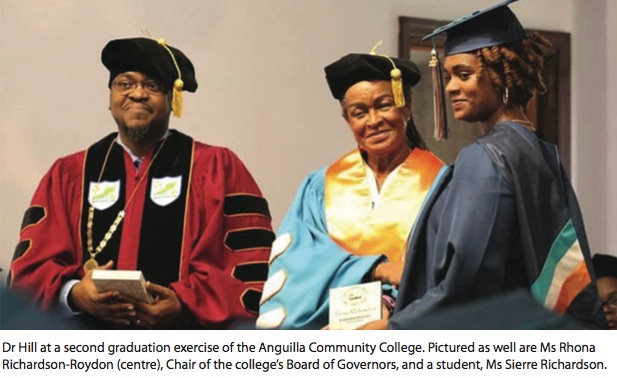
The UWI had practised blended learning since 2012, and when the pandemic arrived, teaching and learning wasn’t entirely sideswiped. The classroom has now evolved with “greater focus on deepening student engagement and rethinking the traditional assessment processes that may not necessarily be fitting for our context, and our context right now is remote teaching. It allows us to think carefully about what quality looks like in the remote teaching setting,” Hill said.
He's noted that campus educators want to be impactful in their classroom, and many have reached out to CETL for guidance. A number of assessment workshops have been planned to meet the demand, and among them is training on the myeLearning online learning environment, specifically tailored for The UWI STA campus. Capacity-building activities will also include faculty development sessions and office hours sessions. On the agenda for CETL, Hill hopes to implement faculty-led sessions to showcase and evaluate particular tools or strategies within informal small group settings.
For Hill, it’s sacrosanct to continue the legacy of the work already accomplished at CETL, which includes that of the late Dr Margo Burns, the Centre’s previous director from 2016 to 2020. Dr Burns held a PhD in Instructional Design from Northern Illinois University. She received numerous awards for teaching, educational development and instructional design.
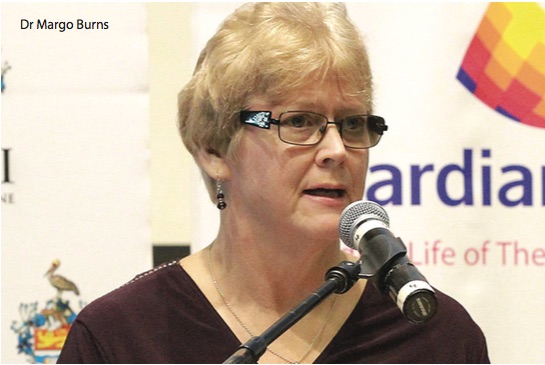
Hill’s vision for the CUTL programme is to offer it externally, which will include other tertiary-level educators. He also aims to strengthen CUTL’s international appeal.
“By mapping it to the internationally recognised Higher Education Academy (HEA) fellowship programme, it means that when someone exits the CUTL programme, she would automatically be a fellow within the HEA. That is something that will deepen the value for CUTL, but at the same time create a level of awareness and a commitment to teaching excellence from an international standpoint.”
Moving beyond workshops and seminars, CETL will offer mentoring and coaching, as well as grow its online presence. He understands how crucial it is to remain connected with the people CETL serves, and offering multiple pathways of support is in the works. Additionally, he wants to improve efficiency, and plans to “collaborate with Campus Information Technology Services (CITS) on innovating an on-demand database” that can be shared with different internal stakeholders. He affirms that taking this data-driven approach will be more compelling evidence for the Centre’s success and for the necessity of teaching and learning excellence than what webinars could achieve alone.
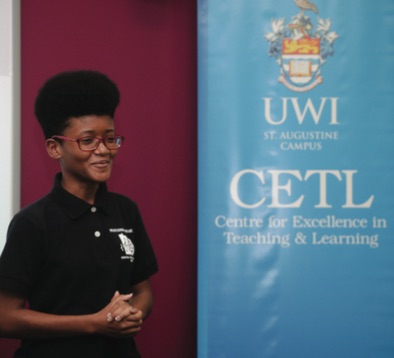
Part of the plan to improve student outcomes is to “form fit” myeLearning and to provide faculty members, who are not trained instructional designers, with a learning environment that suits the needs of their students. Educators will benefit from “a well-designed course space environment” instead of “an empty course shell and tell them go teach”. This environment will map the elements of a physical classroom and translate them accordingly to the virtual space in an intuitive way.
Because he values data-driven approaches, Dr Hill actively collects information and seeks out various stakeholders. In line with this, he will be meeting soon with the Student Guild “to lead us towards having those conversations about what their experience has been like”.
Hill spoke about the redefinition that has taken place regarding the concept of work, that is which work is done, which methods are used to complete work, where work is done and when work is done. “I think I have a clear understanding of who digital nomads are,” he said, referring to the way people can be on the move due to near-ubiquitous access to internet-ready technological tools. “There are not just digital nomads in academia but also in the workplace.”
The new Director promotes an open-door policy, integral to his leadership practice. “This allows me the opportunity to build consensus, particularly in this setting where I'm learning the organisational culture.” Dr Hill’s openness extends to his colleagues, and he values using modern technological tools to keep him and his peers connected and up to date.
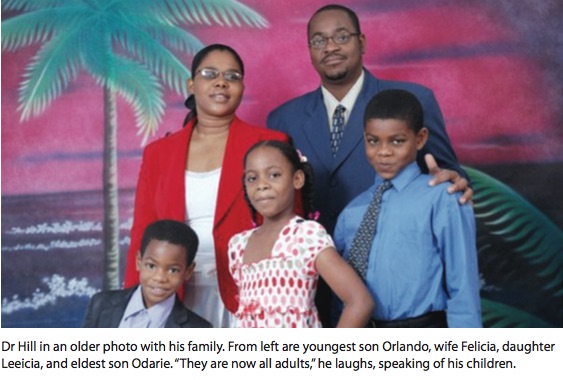
As Director of CETL, corporate social responsibility is not just another item on a checklist for Dr Hill – his community-mindedness is rooted in his identity as a small islander and a desire to give back. Dr Hill is always keen for a challenge and having the chance to solve problems on the job is a thrill. “The more challenges I have, the more opportunities I have to wake up in the morning and be excited about what I'm going to do that day.” While he might have elicited the title of “overachiever”, he prefers to think of himself as simply hardworking, and aiming for balance, even while he’s taking over the world, one problem at a time.
Dr Hill hosts “Let’s Talk eLearning”, a podcast series for tips on eLearning and distance education. To learn more, listen on Apple Podcasts or Audible, and visit https://sta.uwi.edu/cetl/.